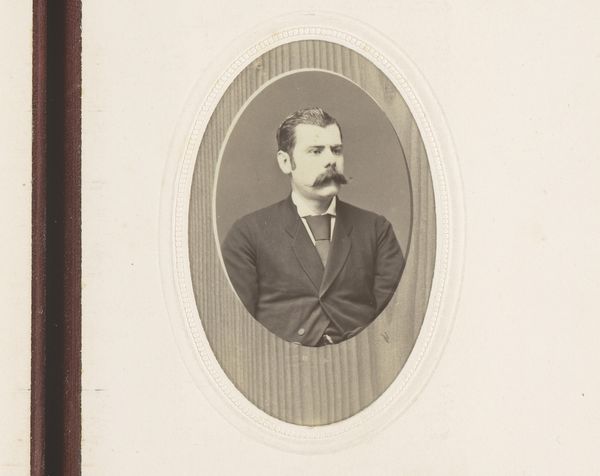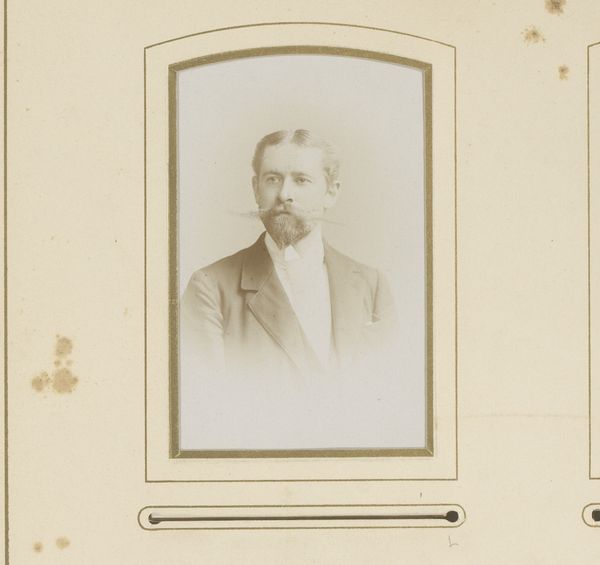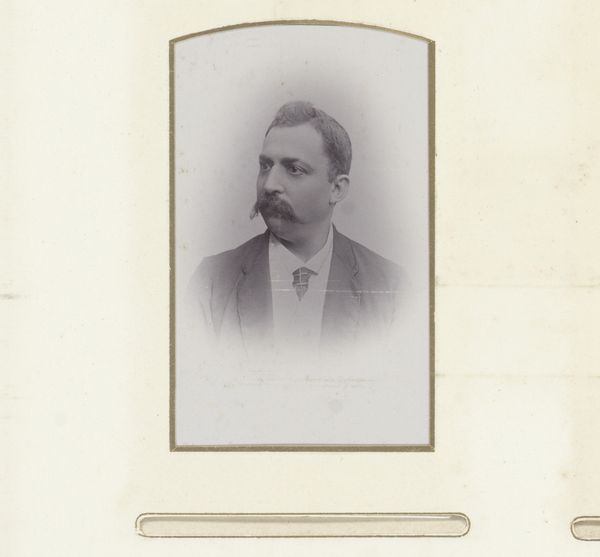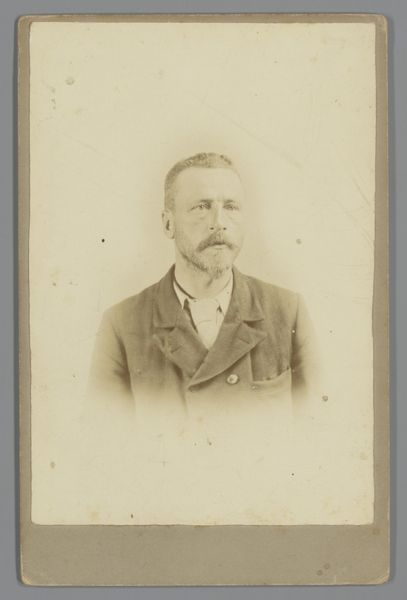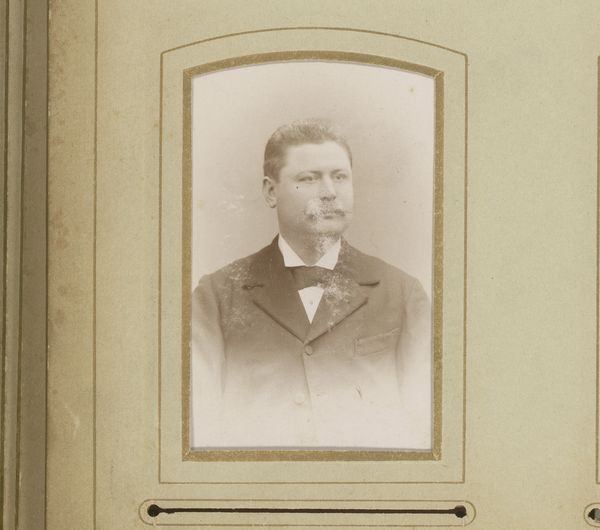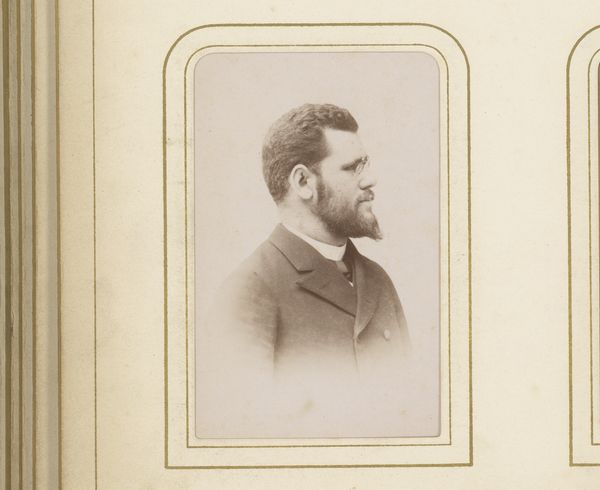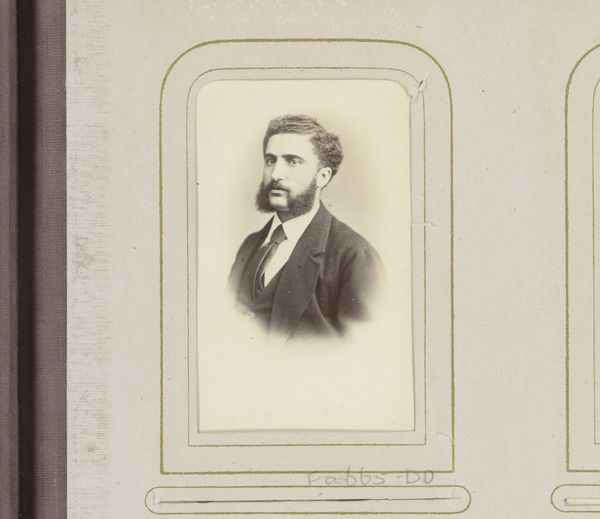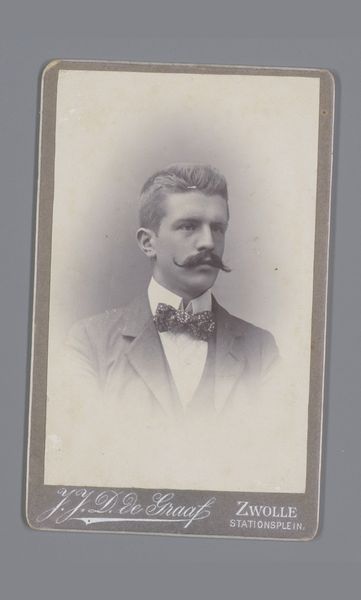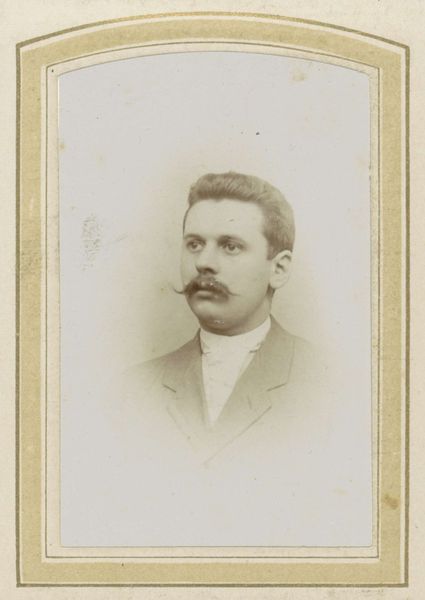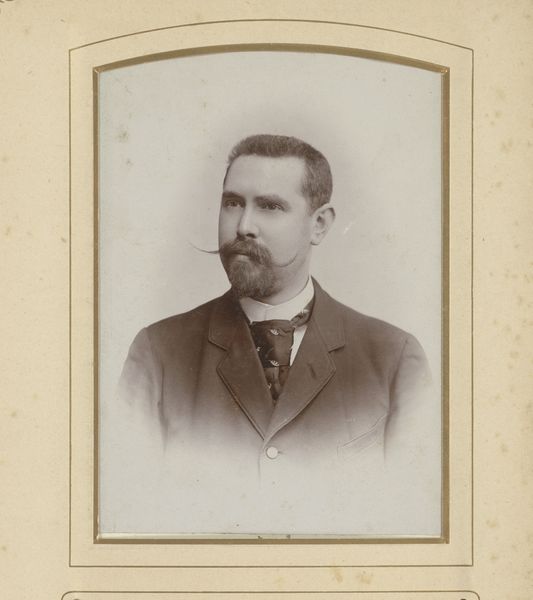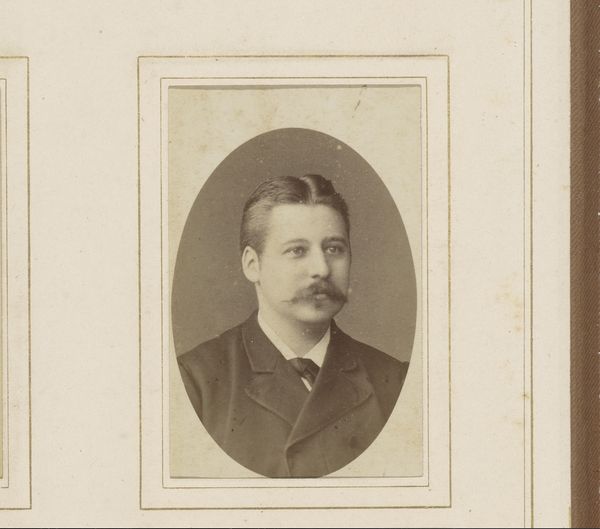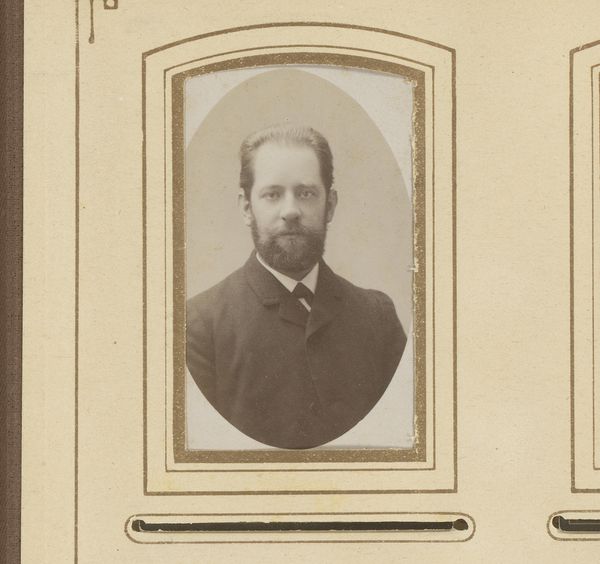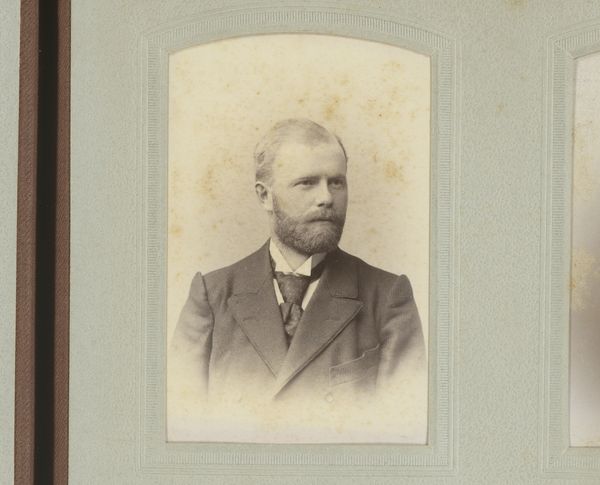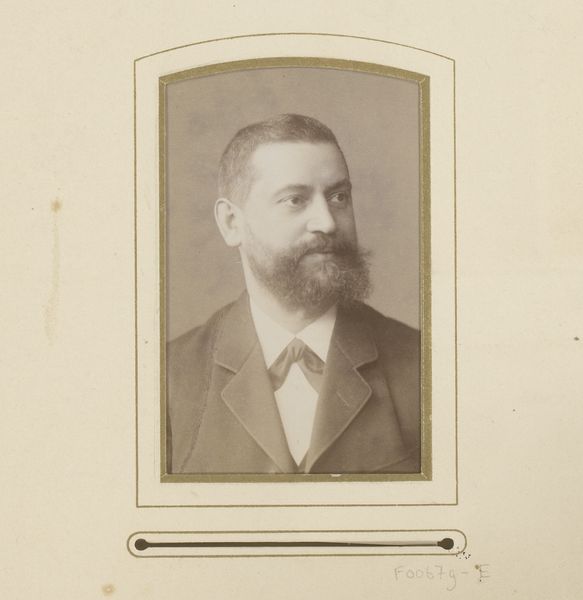
photography, gelatin-silver-print
#
portrait
#
charcoal drawing
#
photography
#
historical photography
#
gelatin-silver-print
#
portrait drawing
#
realism
#
poster
Dimensions: height 84 mm, width 53 mm
Copyright: Rijks Museum: Open Domain
Editor: This is a gelatin-silver print simply titled 'Portrait of a Man with Mustache and Beard' created sometime between 1880 and 1920 by Georg Schönau. It feels very formal and posed. What strikes me is how it reflects the aspirations of the rising middle class through portraiture, what are your thoughts on it? Curator: It's a great observation. This photograph sits within the context of democratization of portraiture in the late 19th century. Photography, unlike painting, offered a relatively affordable way to immortalize oneself. Think about the growing middle class asserting their status. How did they want to be seen? Editor: Definitely respectable and serious, judging by his suit and dignified pose. But I wonder about the artist’s role, were they just documenting, or were they also shaping the subject's image for public consumption? Curator: Exactly! Photography studios were businesses, shaping aspirations through visual language. Consider the composition: the subject is centered, well-lit, emphasizing respectability. It's a constructed reality, not merely a snapshot. To what extent do you think these carefully constructed portrayals shaped the public's perception of identity and success during this period? Editor: That's a really insightful point! It wasn't just about having your picture taken, it was about projecting a specific image aligned with societal values. This really illuminates the role of photography beyond simple documentation. Curator: Indeed. The photograph becomes a powerful tool in shaping social perceptions and solidifying cultural norms. We’ve come to understand this now, as photographs shape reality as much as reflecting it. Editor: Thank you! It makes me consider how even seemingly simple portraits can tell complex stories about social and cultural shifts. Curator: Absolutely. Examining historical photography like this forces us to consider how images, then and now, actively participate in the construction of identity and social standing.
Comments
No comments
Be the first to comment and join the conversation on the ultimate creative platform.
